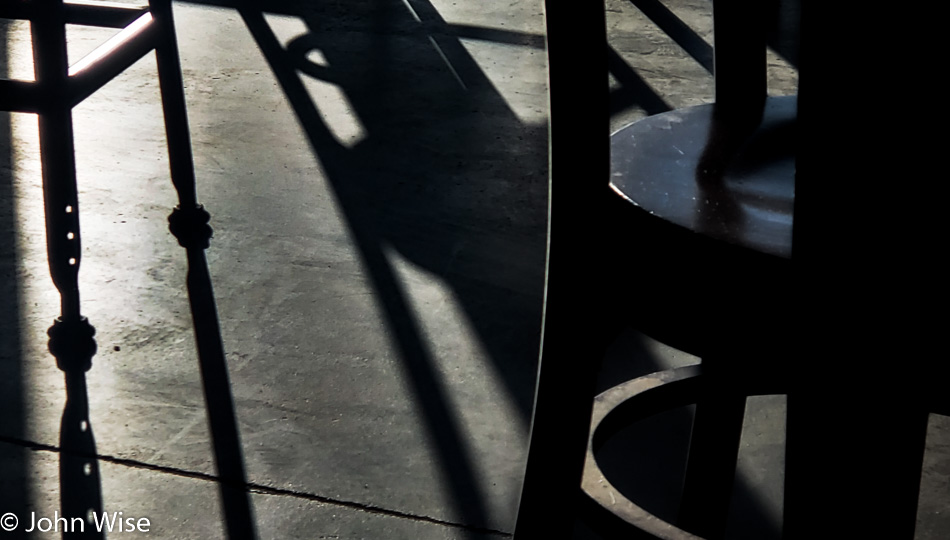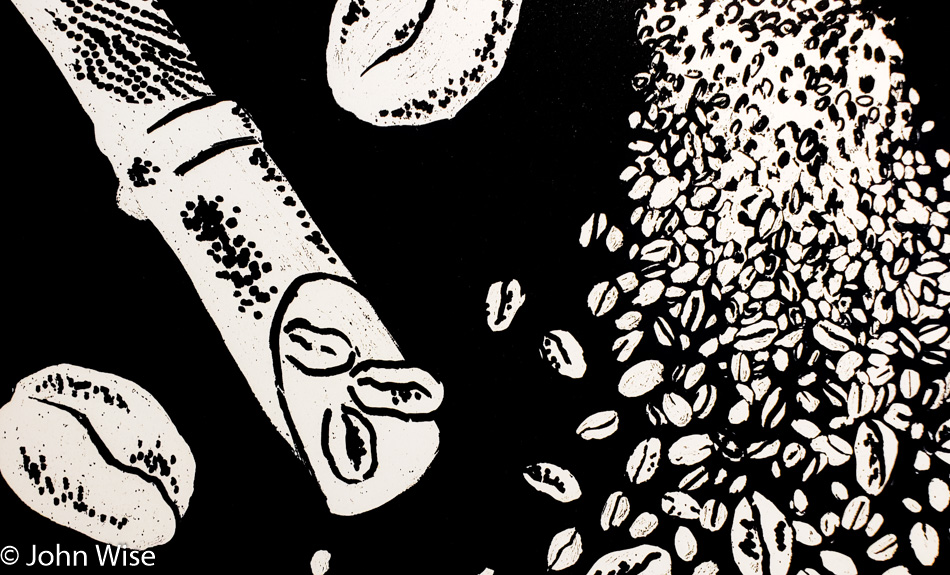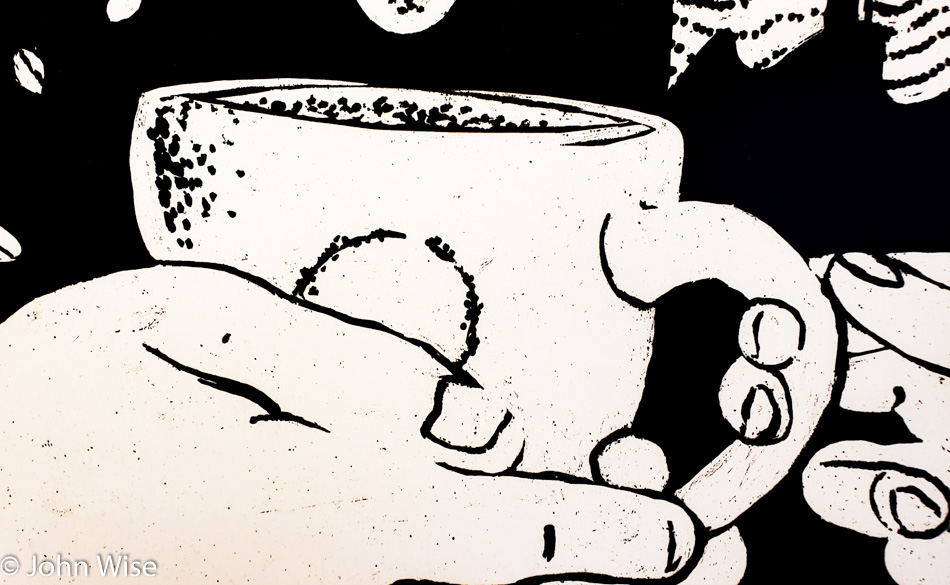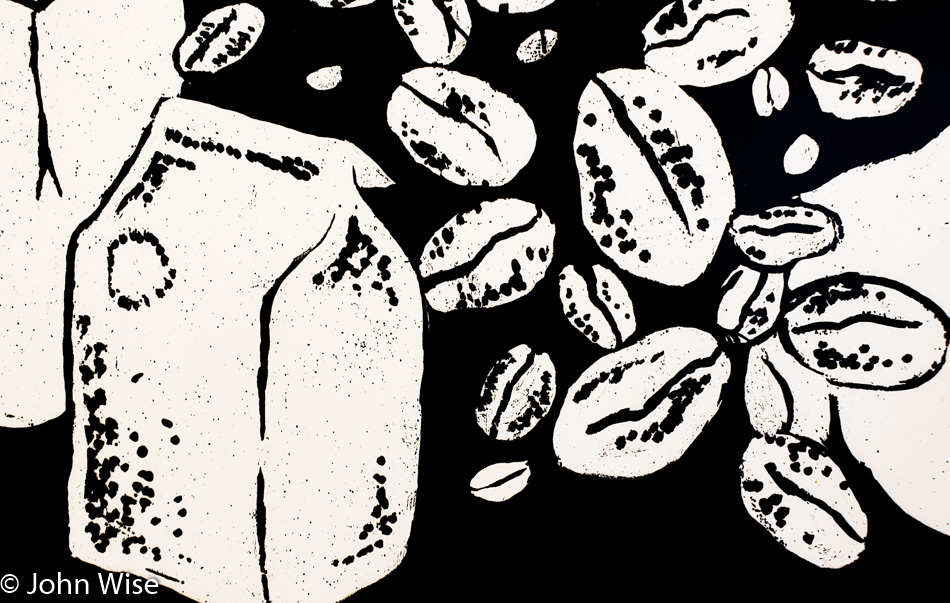
Everything is perfect. The talk is about business, construction, golf, travel, and stocks. There are no junkies here, no homeless people getting free ice water, the bathrooms do not have coded door locks. The world eight miles from here is in a parallel universe, for while the product and brand are the same, the clientele may as well be from an alien planet.
Here are the doctors, lawyers, managers, engineers, executives, travelers, and tech workers, while over there are laborers, students, alcoholics, the impoverished, and occasionally those from the former list who are lured in by the brand, unaware that only the name and product is the same. In between is the universe of the majority who, should they drop into either of these locations, won’t have time to sit there and busy themselves with these differences. I, on the other hand, have the daily luxury of choosing a coffee shop where I can go write without too many distractions.
Obviously, though, I’m a magnet for distraction, on the hunt for something to write about. Since I was an early teen, when I’d secretly spirit myself away on public transit for the hour-long bus ride to downtown Los Angeles, where I could spy every flavor of aberrant behavior and ailment I’d never considered, I was looking to witness the extents of society. Forty-two years later, I’m able to drive myself to the location of my choosing and I have to admit this has grown old as the cast of characters now easily fit in their box of stereotypes. Each plays their role and works hard to ensure they don’t deviate from the behaviors that ensure their brand of conformity fits tightly.
This reminds me of why I travel: it is in order to escape the predictability of people. True that the people out on these travels are often as prone to the same mediocrity and banality that I see in the city, but there are nature and history to take the edge off my antipathy.
Maybe this has you asking, “Hey John, is that a hint of animosity I hear?” I’ve met the rare person who has a legitimacy of character where you sense they are not playing a role but are genuinely comfortable in their skin. On the other hand, there are the actors who are trying to be a parent, a boss, a friend, someone with street cred, a sophisticate, a muscleman, a proper lady, and the list goes on, even though their facades are thin to the point of transparency. I hear you thinking out loud, “Wow, who gave you the superpower to look into the souls of humanity?” Experience and a lot of time out looking and listening to people have helped, but make no mistake; I’m been wrong plenty of times.
Why does it matter? My sense of the tribe extends far beyond me and those in my immediate vicinity. There is much to learn from those who have the knowledge of things that are interesting. I’ve always loved the stories of exploration and invention and so I keep an ear close to the ground for those occasions when I can meet an adventurer of life. This routine has brought me into contact with many a creative person where others’ timidity might not have allowed a conversation to develop.
Is there a downside? My network is elusive and mostly ephemeral. I drop into it while others skirt on the edge before jettisoning off in new directions. This transitory nature has had the effect of reminding me that I’m probably a nomad by nature. When the economic situation demands that I cannot uproot everything in order to head out on a new exploration, these constant new encounters help simulate the condition where one is wandering the earth and discovering new places and personalities.
So, is everything perfect? Well, that depends on who and what I listen to and what I’m witnessing. Writing among the depraved and impoverished can bring a kind of hostility and sadness due to the extent of how people have not cared for themselves, while at other times, I revel in the absurdity. Sitting among the well-to-do can bludgeon me as I witness the over-exaggeration of their own self-worth while they play with their own grandiose sense of importance. Truth is, though, that I need both extremes and everything in the middle, as my curiosity revolves around the entire human condition and the full spectrum of who we people of Earth are at this tiny moment in the history of our species. I guess then that things are as perfect as they can be.




